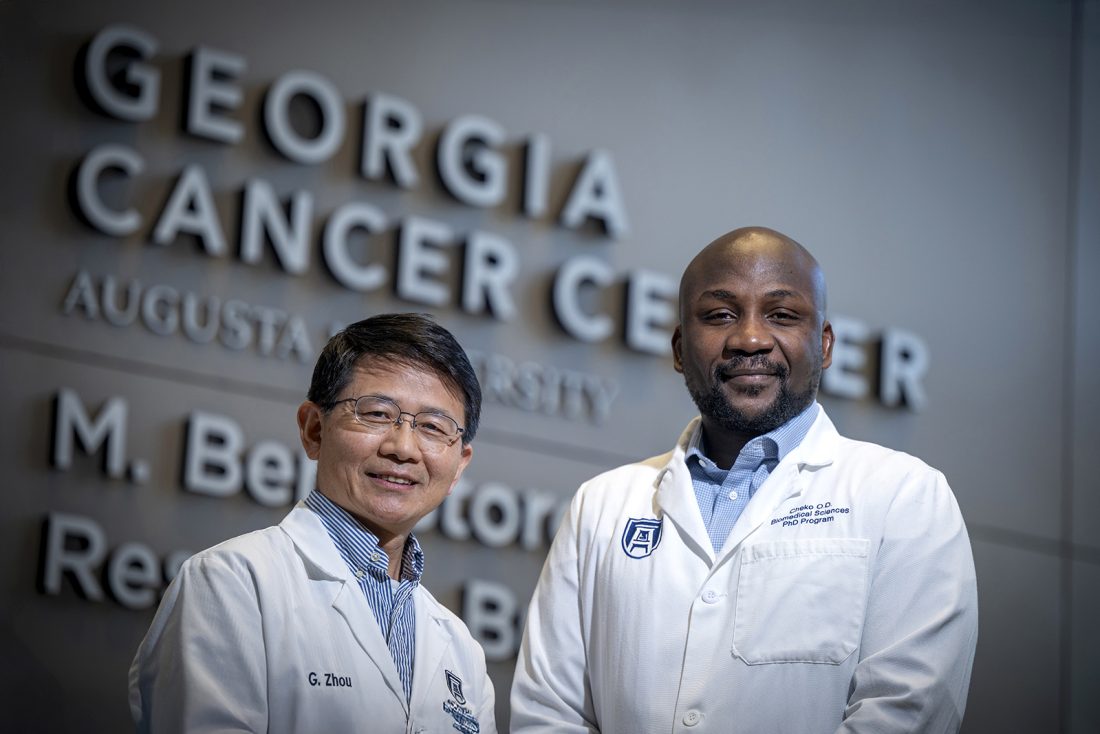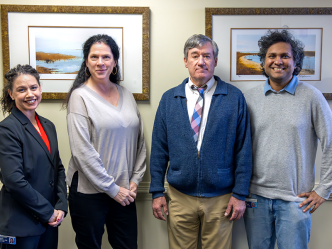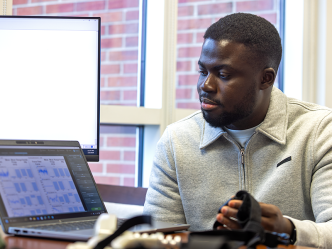The Immunology Center of Georgia at Augusta University has received its first grant through Ignite, a program created to accelerate bold translational research ideas and spark collaborations between faculty and trainees.
The inaugural award supports a project aimed at strengthening chimeric antigen receptor T cell, or CAR-T therapy, an immunotherapy that genetically engineers patients’ own T lymphocytes to recognize and eliminate cancer cells.
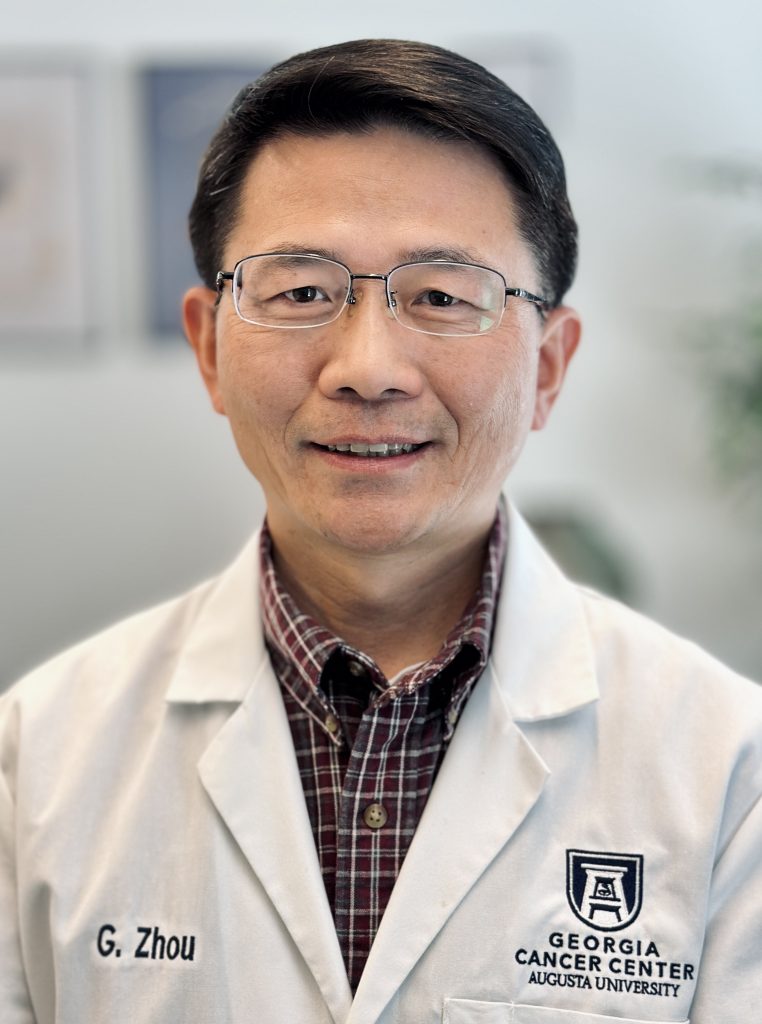
Leading the project is Gang Zhou, PhD, head of the Georgia Cancer Center’s Cancer Immunology, Inflammation, & Tolerance Program; Huidong Shi, PhD, an affiliated faculty member with IMMCG; and Ogacheko Okoko, PhD, a spring 2025 graduate of AU’s Molecular Oncology & Immunology graduate program who is now a postdoctoral fellow in Zhou’s lab.
While CAR-T has shown remarkable success against certain types of blood cancer, it has proven less effective for solid tumors. Zhou and his team are addressing this challenge by testing a modified form of STAT5, a transcription factor that plays a key role in T cell survival, metabolism and function, with the goal of creating more durable and potent CAR-T treatments.
“Our ultimate goal is to engineer T cells that not only survive longer but also remain highly functional, giving patients more durable protection against their disease.”
Gang Zhou, PhD
“In our previous preclinical studies, we demonstrated that mouse T cells engineered to express a constitutively active form of STAT5 could persist long-term in living organisms and maintain strong anti-tumor activity,” said Okoko. “The Ignite grant will allow us to extend this approach to human T cells, with the goal of advancing it toward clinical application.”
Zhou said the research has the potential to impact a broad range of CAR-T therapies, including both those already approved by the FDA and those still being developed for future clinical use.
“In the near term, this work could improve outcomes for patients with B-cell lymphoma receiving CD19-targeted CAR-T therapies, where relapse remains a major challenge,” he said. “In the longer term, it could provide new tools to expand CAR-T therapy’s reach into solid tumors, where success has so far been much more limited.”
“Our ultimate goal is to engineer T cells that not only survive longer but also remain highly functional, giving patients more durable protection against their disease,” Zhou added.
The Ignite program, launched in 2024 through IMMCG, supports trainees as they prepare grant applications for the Georgia Research Alliance’s Innovation & Entrepreneurship program, which provides early-stage funding and guidance. Recipients can also apply for further grants through the GRA’s Innovation & Entrepreneurship program, along with receiving continued mentorship from IMMCG and GRA, with the goal of moving more discoveries out of the lab and into the world.
“The work coming out of Dr. Zhou’s lab is a fresh and exciting approach to improving how engineered immune cells fight cancer,” said Justin Burns, PhD, the Georgia Research Alliance’s vice president for Innovation & Entrepreneurship. “GRA’s initial grant will help the team take the next critical steps to refine the technology and move it closer to real-world use.”
IMMCG co-directors Catherine “Lynn” Hedrick, PhD, and Klaus Ley, MD, are among Augusta University’s eight GRA Eminent Scholars.
“This award is exactly what we envisioned when we launched Ignite, with trainees and faculty working side by side on transformative science,” Ley said. “It’s also a wonderful example of our ongoing partnership with GRA, which is helping put Augusta University on the map in biotechnology and translational research.”
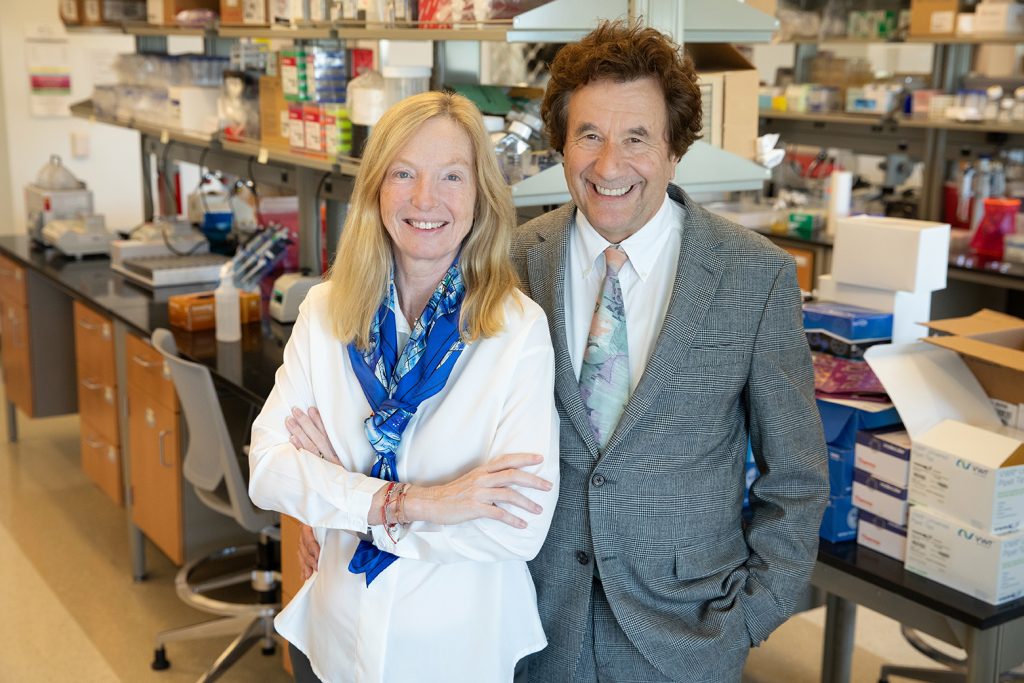
The first Ignite award underscores IMMCG’s commitment to fostering innovation, mentoring the next generation of scientists, and pursuing discoveries that have real-world impact for patients and communities.
“Ignite gives us a unique opportunity to translate our ideas into plausible clinical outcomes,” said Okoko. “Being the first recipients here at Augusta University is exciting. We see this as a chance not just to advance cancer therapeutics but also to highlight the innovation happening on our campus.”
Ley emphasized that continued investment will be key to the program’s success.
“To grow Ignite, we’ll need more venture-focused funding streams that support early, high-risk, high-reward science,” he said. “These kinds of bold translational ideas can ultimately fuel breakthroughs in patient care and economic growth in Georgia.”
Discoveries at Augusta University are changing and improving the lives of people in Georgia and beyond. Your partnership and support are invaluable as we work to expand our impact.
 Augusta University
Augusta University
